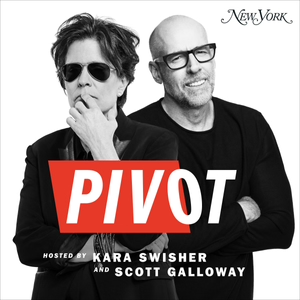
The end of immunity for MPs and MLAs over bribery
03/08/24 • 27 min
Earlier this week, a seven-judge Bench of the Supreme Court ruled that MPs and MLAs are not immune to criminal prosecution on bribery charges related to their votes or speech in Parliament or state assemblies.
This judgement overturns an earlier ruling of the Supreme Court in the 1998 Jharkhand Mukti Morcha (JMM) case. In this case, the majority opinion had held that MPs and MLAs enjoyed immunity from prosecution with regard to how they vote or speak in the House.
Article 105 (2) of the Constitution confers on MPs immunity from prosecution in respect of their speech or voting in Parliament. Article 194 (2) grants the same protection to MLAs. So what prompted the Supreme Court to strip MPs and MLAs of this immunity? What was the original case that set off the chain of events culminating in this judgement? And what are the implications of this verdict? Tune in to find out.
Earlier this week, a seven-judge Bench of the Supreme Court ruled that MPs and MLAs are not immune to criminal prosecution on bribery charges related to their votes or speech in Parliament or state assemblies.
This judgement overturns an earlier ruling of the Supreme Court in the 1998 Jharkhand Mukti Morcha (JMM) case. In this case, the majority opinion had held that MPs and MLAs enjoyed immunity from prosecution with regard to how they vote or speak in the House.
Article 105 (2) of the Constitution confers on MPs immunity from prosecution in respect of their speech or voting in Parliament. Article 194 (2) grants the same protection to MLAs. So what prompted the Supreme Court to strip MPs and MLAs of this immunity? What was the original case that set off the chain of events culminating in this judgement? And what are the implications of this verdict? Tune in to find out.
Previous Episode

How will the change in surrogacy rules impact prospective parents?
The Surrogacy (Regulation) Act was passed in 2021, but over two years later, it continues to be mired in some amount of confusion and on-going cases in the Supreme Court. Brought in to ban commercial surrogacy, it allows only for altruistic surrogacy under certain conditions, and aims to regulate surrogacy clinics, part of the huge infertility health sector in the country. Last month, the Central government brought in a modification to the surrogacy rules – it allowed married couples to use donor eggs or donor sperm to avail of surrogacy. This overturned the government’s own rules that had earlier banned the use of donor gametes. The rules now state that if one person of the intending couple has a medical complication that does not allow them to use their own gametes, then a donor gamete can be used for the surrogate baby. However, a genetic link is still a must – the other partner must provide the egg or sperm as the case may be. This means that divorced and widowed women, who are allowed to avail of surrogacy, have to use their own eggs. The law also bars single unmarried women, those in live-in relationships and those in queer relationships from its ambit – a provision being currently challenged in court by an unmarried woman.
How will the new amendment change things for prospective parents? How can donor gametes be obtained when their sale is banned and the donation is strictly regulated? Has the Act met its goal of regulating surrogacy clinics and protecting surrogate rights?
Next Episode

What lies ahead for Pakistan’s new PM and his Cabinet
Pakistan’s new Prime Minister Shehbaz Sharif has his task cut out for him. From steering the economy out of choppy waters to dealing with a belligerent opposition that continues to contest the results of February’s general elections, Mr. Sharif has to show that he is up to the job.
As Cabinet formation and election of a new President await Pakistan, Mr. Sharif will also be watched for his ability to deal with the country’s permanent establishment – the Army.
Will the fact that he has more patience than his brother Nawaz Sharif allow for political stability in governance?
To discuss these issues, I am joined from Karachi by Shahzeb Jillani, co-host of Dawn TV’s current affairs show, Zara Hut Kay.
If you like this episode you’ll love
Episode Comments
Generate a badge
Get a badge for your website that links back to this episode
<a href="https://goodpods.com/podcasts/in-focus-by-the-hindu-211949/the-end-of-immunity-for-mps-and-mlas-over-bribery-46293972"> <img src="https://storage.googleapis.com/goodpods-images-bucket/badges/generic-badge-1.svg" alt="listen to the end of immunity for mps and mlas over bribery on goodpods" style="width: 225px" /> </a>
Copy




